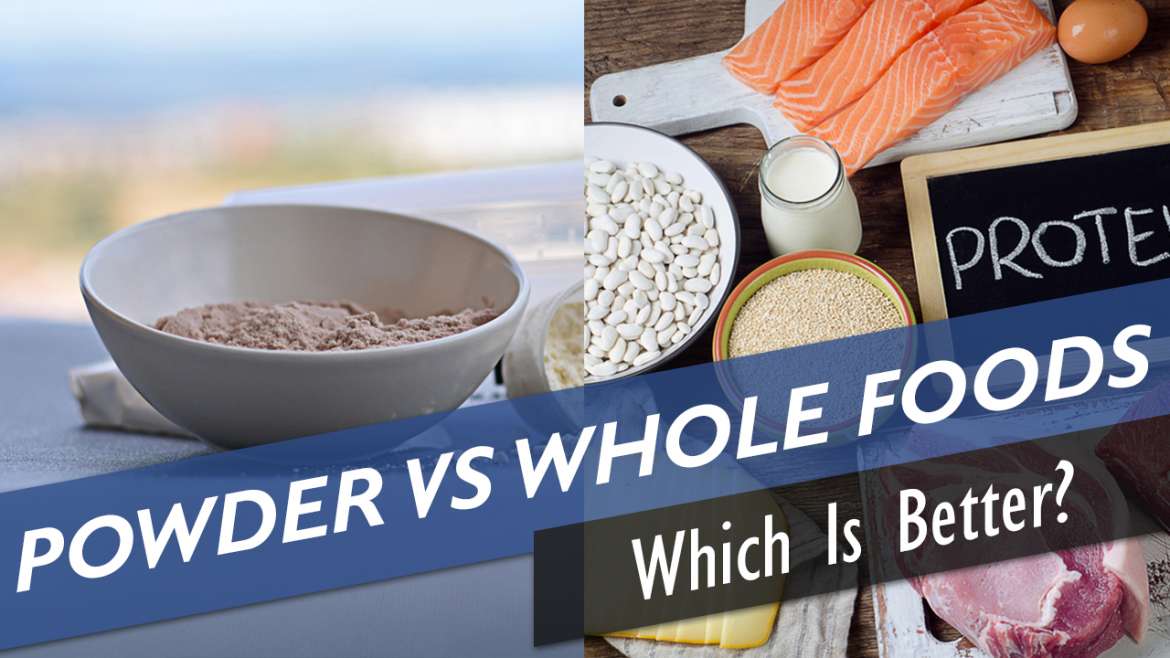Protein is by far the most important macronutrient when it comes to building muscle or retaining it when wanting to lose weight. Most people think protein is just necessary for muscle building, but in fact it actually has dozens of other essential roles in the body, including:
• Producing antibodies for the immune system
• Manufacturing hormones and enzymes that are involved in most reactions in your body
• Aiding in the digestion and absorption of food
• Providing structure for muscles, tendons, ligaments and organs
Think of it this way. If your body is a car, then protein is the metal out of which the parts are built. Protein not only provides the building blocks for muscle growth, it also supplies the amino acids needed to reduce muscle breakdown. In essence, protein both builds new muscle and saves existing muscle from being lost; both functions are very important in maximizing muscle and minimizing fat.
You probably already know all of this and I don’t need to convince you anymore. Instead you are wondering how to reach your daily protein needs. Should you go with only whole food sources, such as lean meet, eggs or beans if you are a vegan. Or should you preferably go with protein supplements like protein shakes. Which is better?
To answer this question we have to compare the two options along different categories. The most important are nutrients, digestion and convenience.
Which Is More Nutritious?
First nutrients. Which of the two, whole foods or protein supplements is more nutritious? Obviously, the winner will almost always be whole food sources. For example beef is not only a high in protein, but also an excellent source of iron and also some creatine. Or consider salmon, which provides you with essential omega 3 fatty acids. Nuts also come loaded with healthy, unsaturated fats and important micronutrients.
Compare that to protein powder, which is a highly filtered and processed and basically pure protein and nothing else. But keep in mind that this can also be a good thing. If you follow a calorie-restricted diet for weight loss you probably want the most bang for your buck.
Therefore, trying to get all your necessary protein from nuts won’t be a good idea because you will also coingest high amounts of fat and therefore high amounts of additional calories. This is one reason why for me, protein supplements become more important when I’m cutting and trying to lower my body fat percentage.
Pretty much the only whole food option that is also high in protein without any additional calories are egg whites, which might be an option if you cannot get your hands on protein powder for some reason.
What About Digestibility?
Because whole foods come as a solid mix of different nutrients, whereas protein powder is basically liquid protein, whole foods are generally digested a lot slower. This can be a good or a bad thing depending on your goals.
For the average person, a slow digesting protein will usually be better because it provides a steady stream of amino acids, while also providing higher levels of satiety. Now, if you care about your pre and post workout nutrition, quickly digesting protein proteins will benefit you more because they make the amino acids available more rapidly.
Convenience
And lastly we have convenience, also includes two other factors: taste and price. For me personally, whole foods will always taste better than protein powder not only because I can actually chew them but also because I usually eat them as part of an entire meal which also includes some carbs and fat.
That said, quality meat and chicken isn’t the cheapest, at least not where I live, and even when you go with cheaper vegan sources like beans and lentils, you still have to prepare them. Therefore, when you are on a budget and lead a busy life a quality but cheap protein powder can make your life a lot easier.
Conclusion: Whole Food protein vs. Protein Powder: Which is better?
While it is true that any healthy diet should be built around whole and minimally processed foods, there is a place for protein powders, especially when it’s a fitness diet.
Building muscle requires quite a bit of protein and getting enough every day can be tricky, especially when you don’t have time to prepare high protein meals all the time. That is why most athletes and bodybuilders use protein powders in addition to a balanced diet.
That is also what I recommend. Focus on setting up a quality meal plan first, and then get any additional protein through supplements. A good guideline is to not get more than 30% – 50% from supplements. For most people this will mean 1 – 3 protein shakes per day, depending on how much total protein they require.



